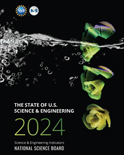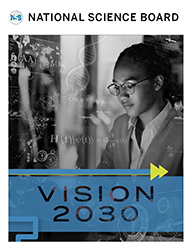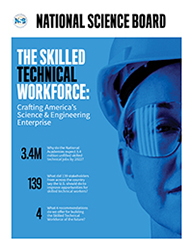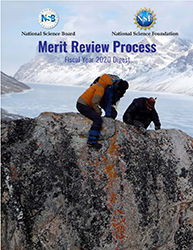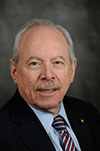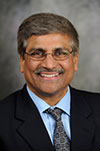Committee on Education and Human Resources (CEH)
Overview
The Committee on Education and Human Resources (CEH) provides guidance and advice on NSF policies related to science, technology, engineering, and math (STEM) education, informal science, and training portfolios. The Committee also provides advice to the White House, Congress and to the scientific and engineering community on major national policy issues pertaining to STEM education, human resource needs and employment, and human resource development.
Committee Members
| Chair | ||
| Vice Chair | ||
| Members | ||
| Executive Secretaries | ||
| Mr. James Donlon & Dr. Karen King | ||
| NSBO Liaison | ||
Dr. Matthew Wilson |
||
Charge
The Committee on Education and Human Resources (CEH) is charged with two principal roles. It provides guidance and advice on major policy issues related to the NSF education, informal science, and training portfolio; and reviews proposals representing a significant expenditure of National Science Foundation resources. It also provides advice on major national policy issues in science, technology, engineering and mathematics (STEM) education, human resource needs and employment, and human resource development. The Committee makes formal recommendations, as appropriate, for the full Board's consideration and action.
- The Committee engages in review of long-range planning of NSF education programs and initiatives,
monitoring their development and integration with research. This is reflected in the Committee's deliberations
on:
- demand for and supply of scientists, engineers, and technicians for the Nation's workforce;
- access to and participation in science and engineering by all Americans, especially members of subgroups of the population currently underrepresented in science and engineering fields; and
- preparation of the American citizenry for effective understanding and use of science, technology, engineering, and mathematics.
- Through comprehensive review and discussion, the Committee may develop and submit formal recommendations
on NSF policy guidance for full consideration and action by the Board on:
- proposed awards for NSB approval as required by law and as set forth in the NSB delegation of authority;
- programs and major new projects/facilities, including management of awards and structures;
- task force reports assigned to its purview; and
- priorities and balance of support among NSF programs devoted to preschool, K-12, undergraduate, graduate and postdoctoral education; to faculty/teacher development at all levels; and to informal science learning, appreciation and understanding by the general public.
- The CEH supports the Board's national policy role in elementary, secondary, higher and informal education, lifelong
learning, and human resource development in science, mathematics, engineering and technology. This support includes:
- recommending specific actions to the Board to improve science education in coordination with other agencies and organizations (private and nonprofit);
- recommending specific actions to the Board to enhance the development of the Nation's science and engineering workforce based on empirical data, such as the biennial Science and Engineering Indicators report, NSF grant review and award data, and scholarly studies in the social and behavioral sciences; and
- coordinating its work and resources with those of the other standing committees in order to assure sound and timely recommendations for specific Board actions.
